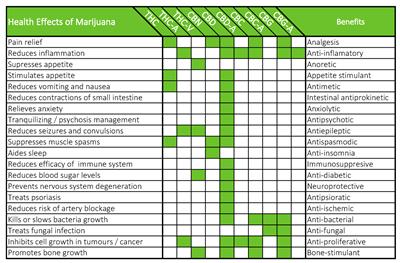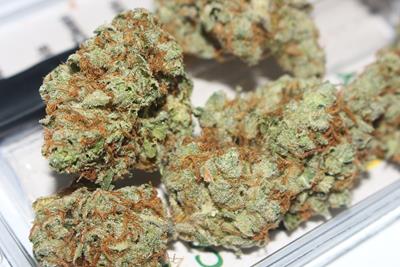
Monday June 26, 2017
 Health/Science
Health/Science
Whether you fear an imminent drug test or simply want to know more about marijuana’s effect on your body, you’ve likely wondered how long cannabis stays in your system. Not only will this information help you avoid the negative consequences of testing positive, but it also helps you decide whether you personally want to use cannabis. So, how long does cannabis remain in the body?
The Short Answer
For most people, cannabis stays in the body in large enough quantities to be detected for no more than a month, and often as little as 10 days. Specific detection times, however, vary based on how long you have used the drug and what type of test you take.
The most common detection methods include:
-
Urine Tests
If you've only used cannabis once, a urine test can detect it within 7 days. If you use it regularly, detection times can range from a week to 100 days, though they usually fall under 30.
-
Blood Tests
Of more limited duration than urine tests, blood exams can detect cannabis in repeat consumers between 2 and 7 days after the last time they used it. If you have only used it once, these tests typically work for 24 hours.
-
Hair Tests
This method is of limited value on single users, but for repeat users, it can detect cannabis for months afterwards – sometimes years for heavy consumers.
-
Saliva Tests
These exams have not yet been shown to work, whether for repeat or single users.
Different methods have different detection times because they don't search for the same thing. Urine tests, for example, detect THC-COOH, which is not psychoactive, while blood tests look for the psychoactive version of THC. This makes blood tests better for measuring actual impairment.
While these are the average detection times, they may not be accurate for you as an individual. Heavy users, for example, might take much longer for THC to leave their system. Because of this, it is important to consider the following information.
 Urinalysis is the most common method of drug testing.
Urinalysis is the most common method of drug testing.Factors for Finding Cannabis
The length of time cannabis stays in your system and your likelihood of testing positive both depend on a wide variety of factors. These include:
-
Body Fat Content
Cannabinoids, or chemical compounds responsible for the effect of cannabis on the brain, store themselves in fat cells. Thus, the higher a percentage of body fat you have, the longer it will be in your body. In general, this means that people with higher body mass indices (BMIs) will have cannabis in their system for longer, though BMI is not perfectly correlated with body fat content.
-
Exercise
While exercising does not increase the total amount of time that cannabis stays in your system, it may increase your likelihood of testing positive on a drug exam. When you exercise, your body burns fat, releasing chemicals stored in that fat into the bloodstream. Thus if you exercise shortly before taking a drug test, it is more likely to find the substance. However, exercising weeks before an exam is recommended because it will burn fat cells containing cannabinoids.
-
Hydration
If you are dehydrated when you take a drug test, there will be less water in your urine or blood, meaning that cannabinoids will make up a higher percentage of the sample. As with exercise, this technically does not make it stay in your system longer, but it can cause you to test positive at a later date than you otherwise would.
-
Drug Strength
Different varieties of cannabis have different levels of strength. The stronger it is, the higher a concentration of THC it has. This can leave more cannabinoids in your body, which may take longer to eliminate.
-
Metabolism
An individual’s metabolism affects the rate at which their body eliminates cannabis. It also affects the amount of body fat they have, further influencing cannabinoid detection.
-
Other Factors
Height, age, gender, and the method you used to ingest cannabis all affect how long it can be detected in your system.
Based on this information, many people think they can find ways to lower their probability of testing positive for cannabis use. While it is true that lowering your amount of body fat and staying fully hydrated can improve your odds, quick fixes have a poor track record of helping people pass drug tests.
Many people, for example, try to flush out their systems with water immediately prior to being tested; this has limited effectiveness at best, especially on short notice. The most reliable way to avoid positive results is to not use cannabis if you expect to be tested within the next month, and to moderate the strength of the drug when you do use it.







